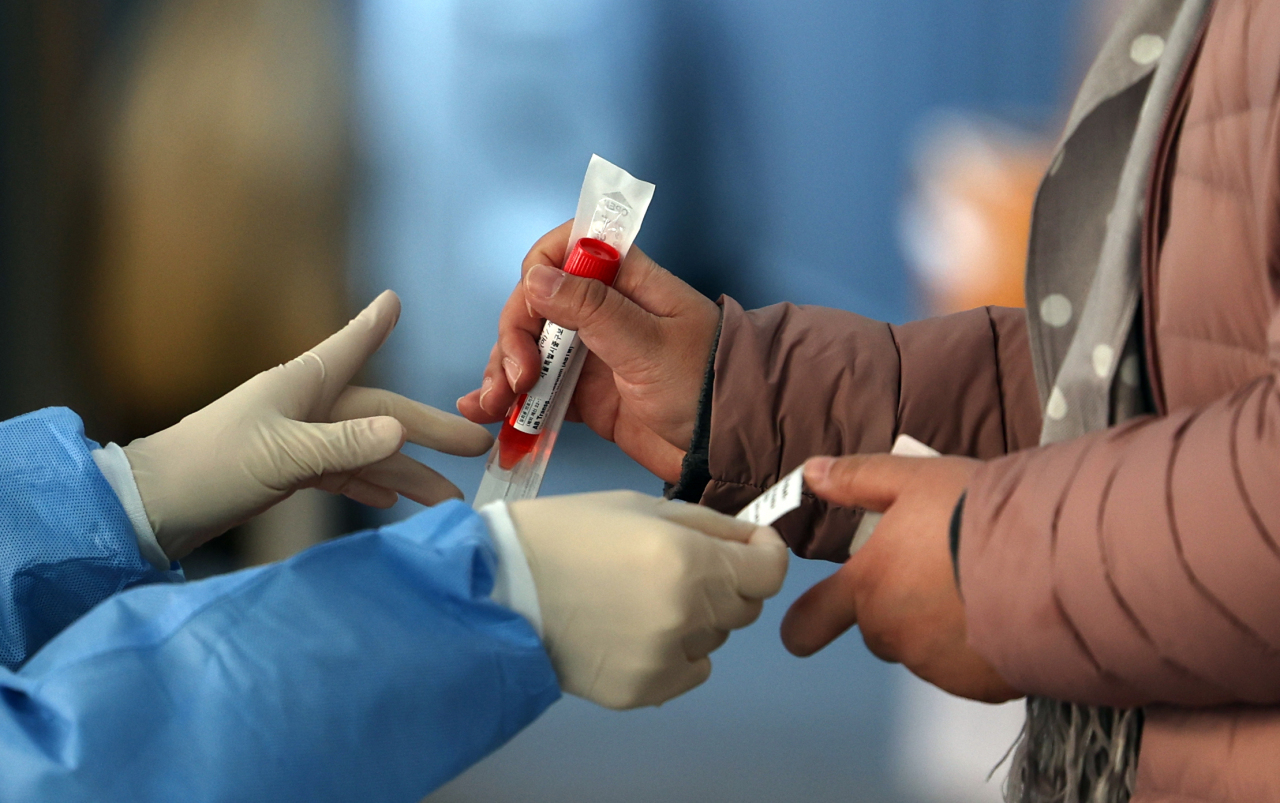The number of severe COVID-19 cases in South Korea hit another record high during the 24 hours of Sunday, the country’s health authorities said Monday.
According to the Korea Disease Control and Prevention Agency, the country’s severe cases reached an all-time high of 1,273, increasing 57 from the previous day’s 1,216.
The bed occupancy rate for COVID-19 patients also reached 70 percent, up 2.2 percentage points from the previous day, as the number of severe cases remained high over the past few weeks.
The country reported over 1,000 severe cases on March 8. Since then, the number of critically ill patients has remained above 1,000. The previous record was reported on March 16, with 1,244 severe cases.
The country’s health authorities, however, expect the number of severe cases to go up further, to surpass the 2,000 mark in the following two or three weeks.
On Sunday, the number of COVID-19 related deaths also went up by five to reach 287. The fatality rate stood at 0.13 percent.
A large portion of the critically ill patients and COVID-19 deaths are people aged over 60.
According to government data, the people aged 60 and older accounted for 84.9 percent of the all severe cases reported on Monday. They also accounted for 94.9 percent of the COVID-19 deaths reported the same day.
The number of severe cases and deaths among the over-60s are expected to remain high, as the number of daily infections remains high.
On Sunday, the daily infections among the over-60 people accounted for 20.9 percent of the total, surpassing the 20 percent mark for the first time in three months. The proportion was just 7.1 percent on Jan. 25, early on in the current wave of infections
“(The government) is trying its best to reduce the number of severe cases and deaths from COVID-19,” Health Minister Kwon Deok-cheol said during a COVID-19 response meeting Monday.
Kwon said the government will have more hospitals provide face-to-face treatment to meet increasing health care needs from COVID-19 patients.
Kwon also mentioned that the government will remain cautious and carefully monitor the development of the omicron wave, mainly due to the spread of the so-called stealth variant.
The patients infected with the subvariant accounted for 56.3 percent last week, becoming the dominant variant in South Korea, according to Kwon. The figure was up from the previous week’s 41.4 percent.
Kwon, at the same time, noted that South Korea might have passed the peak of the omicron wave, given the recent decreases in daily infections.
South Korea’s daily COVID-19 infections dropped to 187,213 COVID-19 cases as of midnight Sunday, going below 200,000 for the first time since March 1, when the country added 198,803 daily infections. The total number of cases during the pandemic has now surpassed 12 million.
Meanwhile, the government may further ease the existing social distancing rules that expire Saturday, as the country’s daily infections continue to slope downward.
The government will announce its decision Friday during its COVID-19 response meeting.
By Shim Woo-hyun (
ws@heraldcorp.com)








